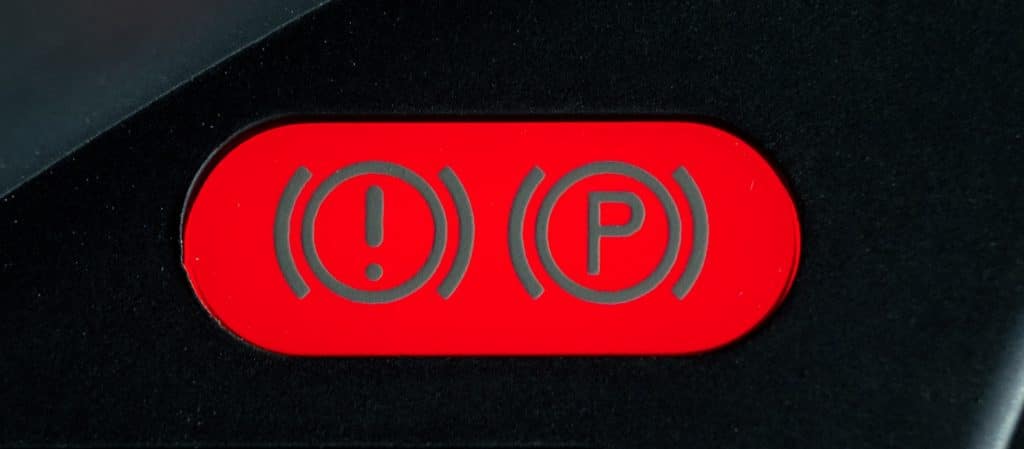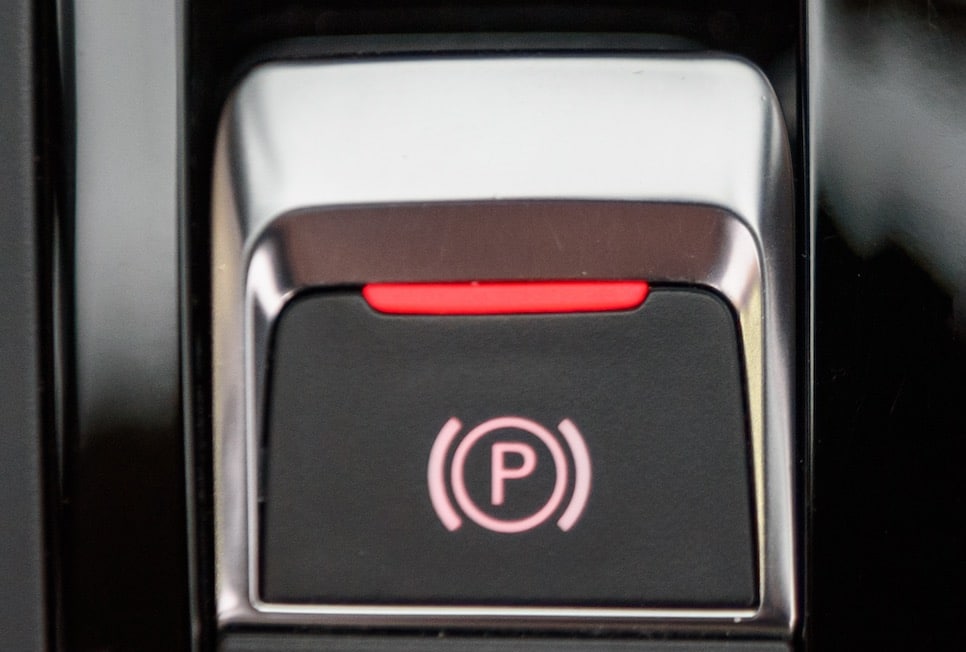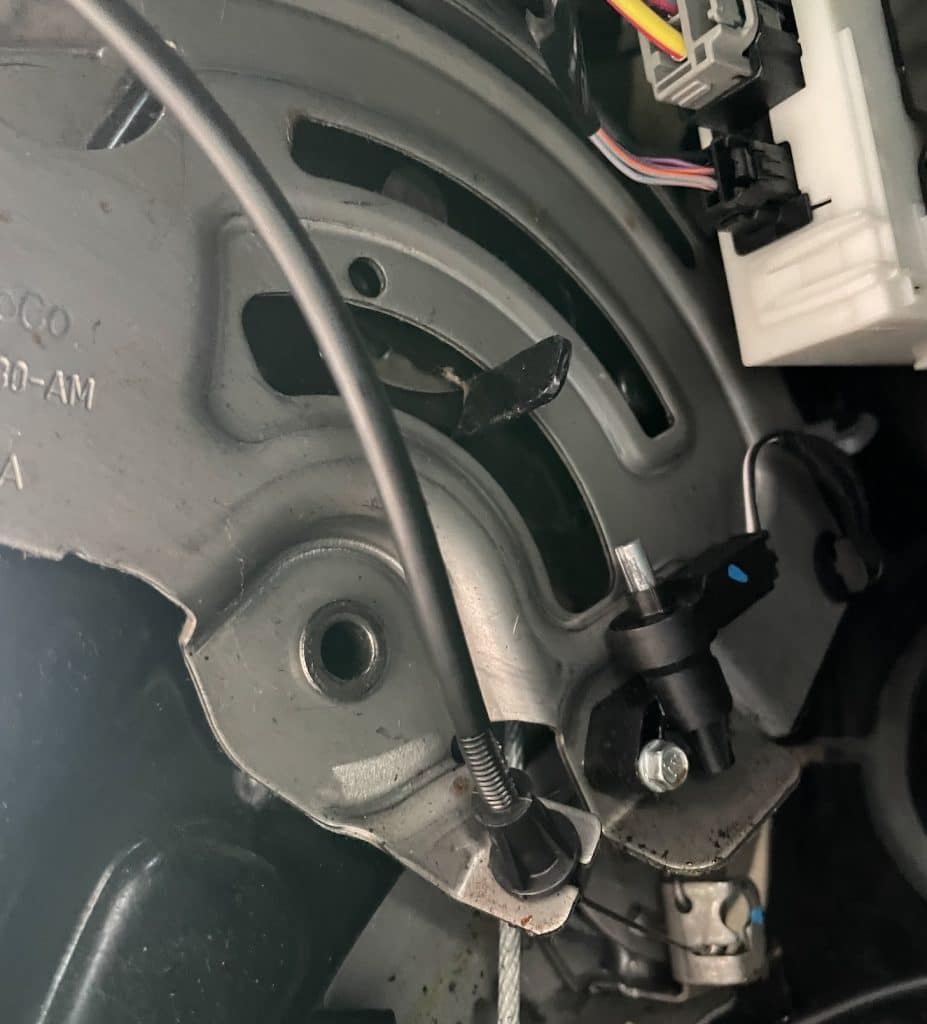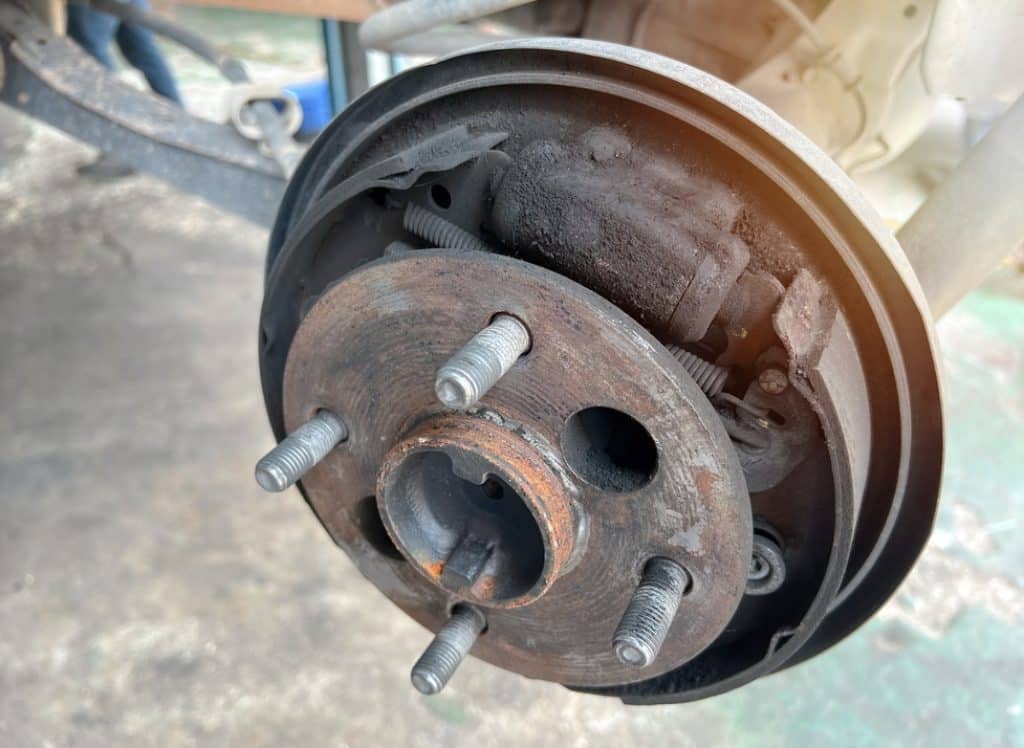
There’s nothing worse than finding out your Toyota FJ Cruiser’s parking brake is stuck, especially when you’re ready for the day.
The good news is this problem can be easily fixed with some simple steps.
In this article, we’ll discuss the causes of a stuck parking brake in the Toyota FJ Cruiser and how to get your vehicle unstuck and get you on the road in a hurry.
The most common reasons a parking brake sticks is corrosion and lack of consistent use.
How to Tell If a Parking Brake is Stuck

Before jumping down to why a parking brake gets stuck, let’s make sure the parking brake is the issue.
Your FJ Cruiser’s brake warning light will stay illuminated if the parking brake is on. It also stays on if there is an issue with the braking system. Keep that in mind as you read through this section.
There are three easy ways to tell if your vehicle’s emergency brake is stuck. One only works if you have a manual emergency brake (non-push button), and one only works if you have an electronically assisted parking brake.
Too Easy to Push (Non-Electronic Parking Brake)
Your FJ Cruiser’s brake pedal or lever should feel hard to push or pull as you engage or disengage the parking brake.
If the emergency brake feels easy to press, and then at the very end of its travel, it gets harder to move, that would indicate that the parking brake is stuck.
When you release the Toyota FJ Cruiser’s parking brake, it automatically reverts to its normal position due to its spring-loaded mechanism in the pedal.
The Engine is Working Too Hard
If your FJ Cruiser’s engine appears to be working extra hard to get you moving, that indicates the parking brake is stuck.
It could also mean that one of your vehicle’s brakes is stuck. This happens when there’s a crimped brake line, bad caliper (disk brakes), or faulty wheel cylinder (drums). When this happens, your FJ Cruiser may pull to the left or right when going down the road.
No Actuator Noise (Electronically Assisted Parking Brakes ONLY)

If your FJ Cruiser is relatively new, it may have an electronically assisted parking brake. You’ll hear a noise as the brake engages.
If there’s no noise, start by taking a look at the parking brake fuse.
After that, inspect the wiring harness going to the electronic parking brake. Verify that it’s not damaged, that the voltage level going to it is correct and present, and that the ground connection is secure.
If that all checks out, your FJ Cruiser may need a new electronic motor.
Rear End Squats When Accelerating
Another surefire sign that the parking brake is sticking is when the rear of the vehicle squats down when moving (the parking brake mechanism is almost always in the back of the vehicle).
Ho w to Release a Stuck Parking Brake

To disengage the emergency brake, we’ll need to determine what part of the Toyota FJ Cruiser’s parking brake system will not release the brake.
If your emergency brake is cable operated, you can get under the vehicle and have a friend push the emergency brake pedal/lever. Verify that the cable is moving and try and follow it to where the movement stops.
Cold Weather
If it’s cold outside when you are reading this, it’s possible that the cold weather has frozen your FJ Cruiser’s parking brake mechanism into place.
When this happens, the best thing to do is start the vehicle and let it heat up. The heat from the engine and exhaust can free the parking brake mechanism after a while.
Parking Brake Cable Corrosion
One of the most common reasons that a parking brake fails is corrosion. Unlike the primary braking system, which uses hydraulics, most vehicles use a cable that physically connects to the parking brake.

Some modern vehicles use an electronic motor to apply the parking brake when you push a button.
Your Toyota FJ Cruiser’s parking brake can get corroded over time, or the cable can bind.
Here’s what you can do when this happens:
- First, start the vehicle and press the brake pedal a few times.
- Next, try rocking your FJ Cruiser forward and backward.
- If that doesn’t work, you must find whatever is locked up and replace, grease, or repair it.
Faulty Release Lever (Manual Parking Brake)
Your Toyota FJ Cruiser’s parking brake release lifts the lock off of the parking brake’s teeth. If the lever isn’t physically doing that, the parking brake will not release. This is a very rare occurrence.
Can You Drive With a Stuck Parking Brake?
No, you absolutely can not drive your Toyota FJ Cruiser with a stuck parking brake. Driving with the brakes dragging will, at the minimum, destroy a brake pad or shoe. It can even lead to a fire.
How to Keep a Parking Brake From Sticking
Use Them Often
The best way to keep your FJ Cruiser’s brake from sticking is to use the emergency brake every time you park.
It keeps everything loose and is much better than using it only when you are parked on a hill. It’s safer for the vehicle than just relying on the parking pawl.
Lubricate Them
Lubricate the brake’s lever and cable, as this will reduce wear and tear on the parts. This is important if you live in an area with heavy rain or snow, as salt can corrode metal parts.
Conclusion
The most common reason that the Toyota FJ Cruiser’s parking brake gets stuck is corrosion.

